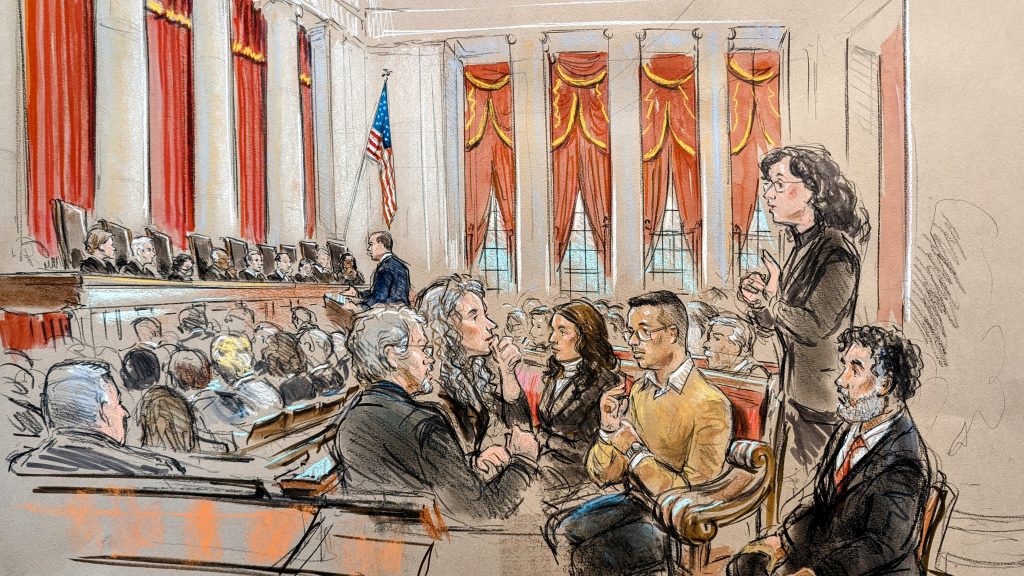Podcast: Play in new window | Download (Duration: 12:38 — 17.4MB)
Subscribe: RSS
The Supreme Court met today to hear a case regarding a deaf student Miguel Luna Perez of Sturgis Michigan, who was denied access to a professional sign language interpreter and whose parents were falsely told over the course of 12 years that their son was on his way to graduation, only to receive a certificate of completion instead of a diploma.
The case concerns two laws: the Individuals with Disabilities Education Act or IDEA, which requires children with disabilities be provided a “free appropriate public education” or (FAPE) and the Americans with Disabilities Act, which prohibits discrimination against individuals with disabilities in general. Upon receiving the news, the Perez family filed a lawsuit against the Michigan Dept. of Education and the Sturgis school board, on the grounds that the school violated both the IDEA and ADA acts.
However, before the case could go to trial, Sturgis school district offered a settlement in which it would pay for Perez to attend the Michigan School for the deaf and compensate the family’s legal fees. The family accepted the settlement but then continued their lawsuit under the ADA, which unlike IDEA entitles victims of disability discrimination to sue for monetary damages. The question now is whether by accepting the district’s settlement, the Perez family thereby forfeited their right to further litigation for monetary damages.
Prior to the supreme court, the sixth circuit court of appeals ruled that had Perez not agreed to a settlement, he could have continued his case under the ADA. Because Perez did not go through the two-step process mandated by the IDEA act consisting of informal resolution between parents and the district and administrative review by an impartial hearing officer before going to federal court and instead deciding to settle or “exhaust his claim,” he was not entitled to sue under the ADA, as stipulated by the IDEA Act’s section 1415L.

On behalf of Perez, his lawyer Roman Martinez opened the arguments:
In a surprise twist, the normally silent Clarence Thomas was the first to pose a question expressing confusion about the differences between the ADA and IDEA, Martinez responded by agreeing with Thomas.
On the side of Sturgis, Shay Dvoretzky then presented his arguments
Normally, a judge would grant an exemption as settling the case would have impacted Perez’s ability to sue under the ADA. However, the sixth circuit judge said that because Perez settled prior to proceeding to a full hearing, he had forfeited his claim, as Mr. Dvoretzky also asserted. Justice Thomas asked Mr. Dvoretzky to explain how such cases would be settled prior to the congressional adoption of the IDEA’s section 1415L in 1986 in response to a 1984 Supreme Court case, eliciting a response from Justice Ketanji Brown Jackson regarding the section’s text. In response, Mr. Dvoretzky said the section originally focused less on financial relief and more so on helping a student obtain a FAPE.
Mr. Dvoretzky then said the section originally focused less on financial relief and more so on helping a student obtain a FAPE.
Click here to listen to the full Supreme Court proceedings. More on this developing story next week on Disabulletin.
 WFHB Bloomington Community Radio
WFHB Bloomington Community Radio


